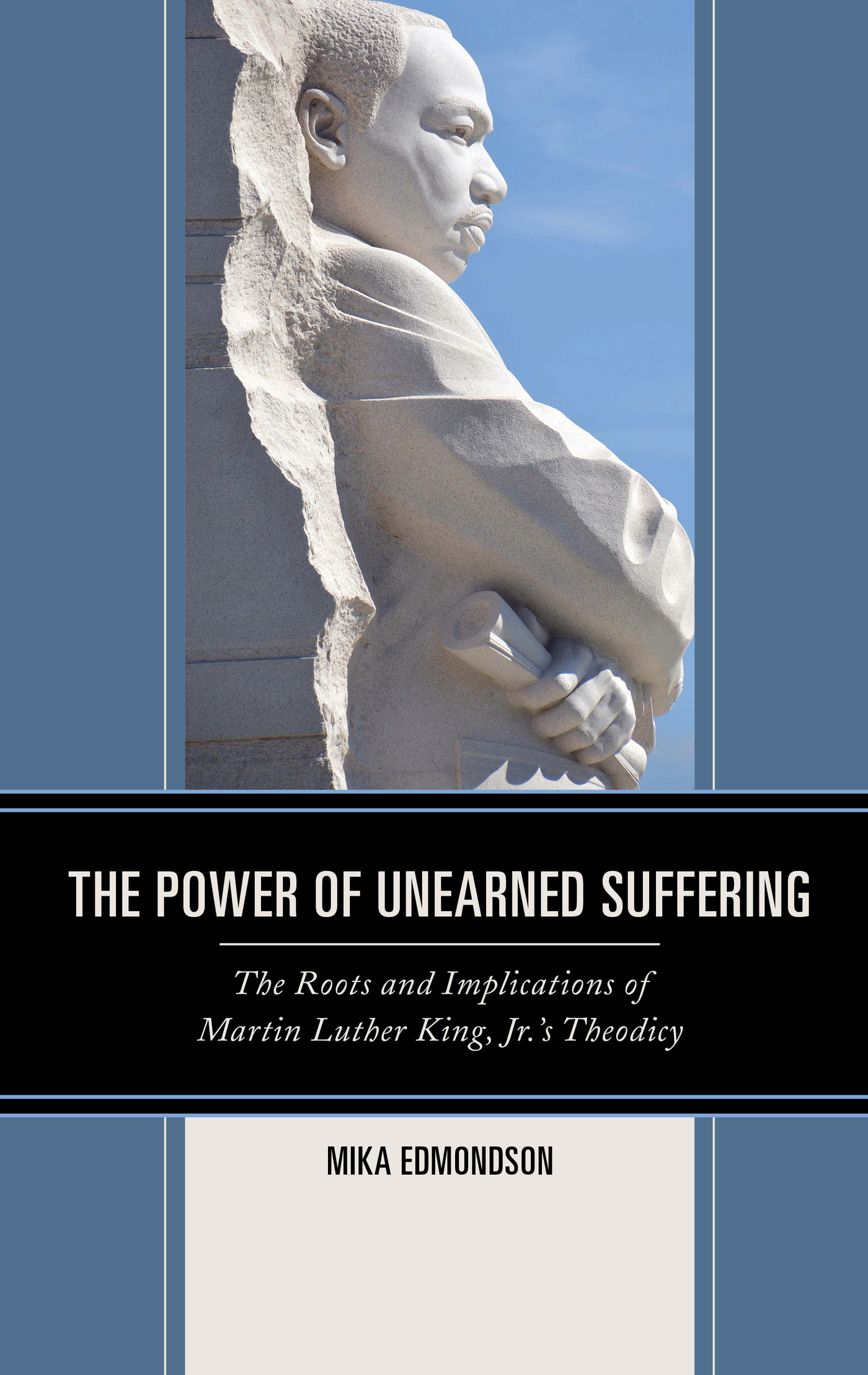The Power of
Unearned Suffering
Religion and Race
Series Editor:
Monica R. Miller, Lehigh University
Anthony B. Pinn, Rice University
The local/global connections between religion and race are complex, interrelated, ever changing, and undeniable. Religion and Race bridges these multifaceted dimensions within a context of cultural complexity and increasing socio-political realities of identity and difference in a multi-disciplinary manner that offers a strong platform for scholars to examine the relationship between religion and race. This series is committed to a range of social science and humanities approaches, including media studies, cultural studies, and feminist and queer methods, and welcomes books from a variety of global and cultural contexts from the modern period to projects considering the dynamics of the postmodern context. While the series will privilege monographs, it will also consider exceptional edited volumes. Religion and Race seeks to impact historical and contemporary cultural and socio-political conversations through comparative scholarly examinations that tap the similarities and distinctions of race across geographies within the context of a variety of religious traditions and practices.
Title in the Series
The Power of Unearned Suffering: The Roots and Implications of Martin Luther King, Jr.s Theodicy, by Mika Edmondson
The Power of
Unearned Suffering
The Roots and Implications of
Martin Luther King, Jr.s Theodicy
Mika Edmondson
LEXINGTON BOOKS
Lanham Boulder New York London
Published by Lexington Books
An imprint of The Rowman & Littlefield Publishing Group, Inc.
4501 Forbes Boulevard, Suite 200, Lanham, Maryland 20706
www.rowman.com
Unit A, Whitacre Mews, 26-34 Stannary Street, London SE11 4AB
Copyright 2017 by Lexington Books
MLK quotations reprinted by arrangement with The Heirs to the Estate of Martin Luther King Jr., c/o Writers House as agent for the proprietor New York, NY. Martin Luther King Jr. Renewed Coretta Scott King.
All rights reserved. No part of this book may be reproduced in any form or by any electronic or mechanical means, including information storage and retrieval systems, without written permission from the publisher, except by a reviewer who may quote passages in a review.
British Library Cataloguing in Publication Information Available
Library of Congress Cataloging-in-Publication Data
Library of Congress Cataloging-in-Publication Data Available
ISBN 978-1-4985-3732-2 (cloth: alk. paper)
ISBN 978-1-4985-3733-9 (electronic)
 TM The paper used in this publication meets the minimum requirements of American National Standard for Information Sciences Permanence of Paper for Printed Library Materials, ANSI/NISO Z39.48-1992.
TM The paper used in this publication meets the minimum requirements of American National Standard for Information Sciences Permanence of Paper for Printed Library Materials, ANSI/NISO Z39.48-1992.
Printed in the United States of America
To Michael and Shirley Edmondson
Acknowledgments
I would like to thank my precious wife Christina and wonderful daughters Zoe and Shiloh, whom I love from the depth of my soul. To my mother, whose love and wisdom I will always cherish. To my brothers Vernon and Michael, my in-laws Mike and Brenda Barland, and extended family who have always offered words of encouragement at just the right times. To my New City Fellowship church family who have been more patient and gracious than I deserve. To Rufus Burrow, Jr. and Lewis Baldwin who are giants in the field of King Studies, yet always made time for a curious student. Dr. Burrows amazing article The Doctrine of Unearned Suffering sowed the seeds that flowered into this project. To Dean Ronald Feenstra, the entire faculty of Calvin Theological Seminary, and countless other professors whose skill and knowledge have helped bring me to this point. To the countless other friends who offered hugs at just the right time and smiles at just the right time and most importantly prayers at just the right time, your contributions have meant more to me than you know. To my late grandmother Lucy Mae Sales, whose strength reminds me of Delia Lindsay King. You taught me how to trust Jesus with my tears. And finally, to my late father Michael Vernon Edmondson who never met a stranger. You taught me that the most important legacy is love.
Introduction
On January 10, 1958, a year after the famous Montgomery Bus Boycott, Karolyn L. Trimble wrote a letter to the young Martin Luther King, Jr. with a pressing concern. She asked, Rev. King... Why is it that God has let Negroes suffer so?... We have been taught from very early ages that God loves everybody. But as I take inventory of the races I can see something strange. This penetrating question has always stood at the heart of the black experience in America. Often without the benefit of formal theological training, enslaved and oppressed black believers have long wrestled with lifes most painful contradictions. Their answers took the form of prayers, sermons, spirituals, humor, and activism and offer one of the most important theological legacies of the American church. Beneath the sweltering sun of southern cotton fields, they shouldered on with the hope that the omnipotent God could make a way out of no waythat, because of Christ, God would somehow bring good from the evils inflicted on them. This doesnt mean suffering itself is good. But in light of the cross of Jesus Christ, believers have held that Gods omnipotent goodness will have the final say over every form of suffering, no matter how severe. This hope in Gods redemptive purposes in suffering has sustained black Christians through historic brutalities like chattel slavery, Jim Crow, the lynching tree, and segregation.
King inherited this 250-year-old redemptive suffering tradition through family and church influences, developed it using resources from the academy, and applied it to the freedom struggle. For King, the cross of Christ represented the definitive proof of Gods purpose to bring redemptive good out of suffering, and the guiding example of how to actively engage suffering towards a redemptive goal. In sermons, speeches, and articles he often noted that unearned suffering is redemptive and successfully deployed this cross-centered theodical vision throughout his participation in the Civil Rights Movement of the 1950s and 1960s. King arguably represents the apex of the redemptive suffering tradition, a cross-centered, clearly formulated, battle-tested theodical vision that the church needs today. In the face of the overwhelming pain caused by police brutality, mass incarceration, disparities in housing and healthcare and the many challenges the black community and church face, we are once again asking Why Lord? What is the meaning of black suffering and how are Christian believers called to respond in the face of it? Thats precisely why a book-length study on Kings theodicy is so vital today, not because Kings theodicy offers all of the answers to the myriad of complex problems the black church and community faces. It definitely does not. But because it offers a hopeful articulation of Gods purposes in black suffering and clear direction for how to engage it.
Although a number of works explore Kings redemptive suffering formula as an atonement theology, Therefore, the lack of focused attention on Kings use of the redemptive suffering motif as a theodicy constitutes a notable gap within King scholarship.
The works that do mention Kings theodicy tend to treat it in a peripheral and oversimplified way, not considering its central place in his thinking or the diverse streams of influences which converged to make Kings approach unique.

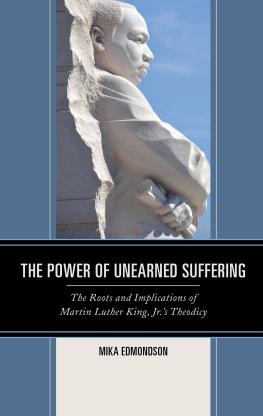
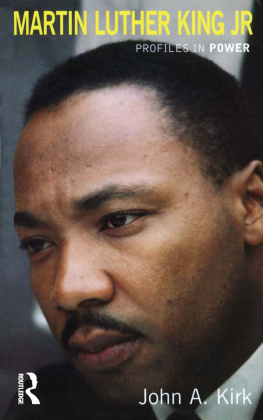
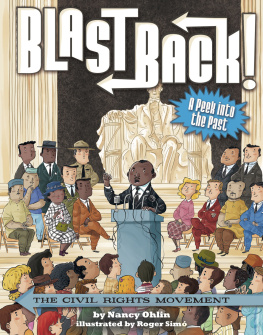
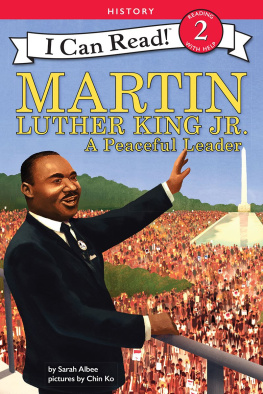
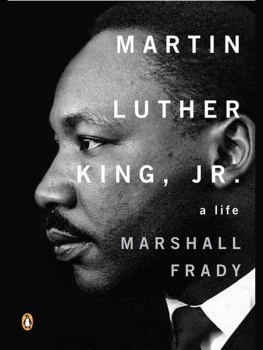
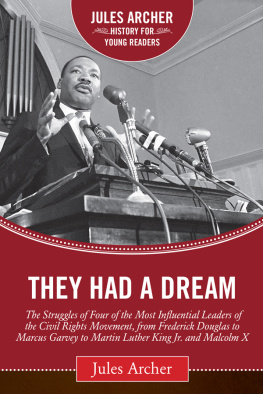



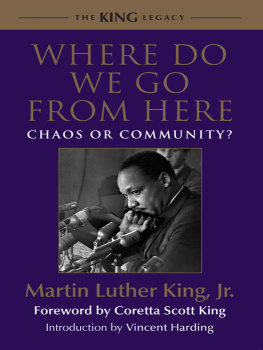
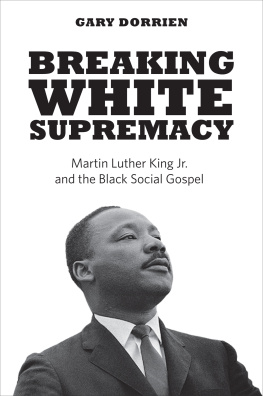
 TM The paper used in this publication meets the minimum requirements of American National Standard for Information Sciences Permanence of Paper for Printed Library Materials, ANSI/NISO Z39.48-1992.
TM The paper used in this publication meets the minimum requirements of American National Standard for Information Sciences Permanence of Paper for Printed Library Materials, ANSI/NISO Z39.48-1992.